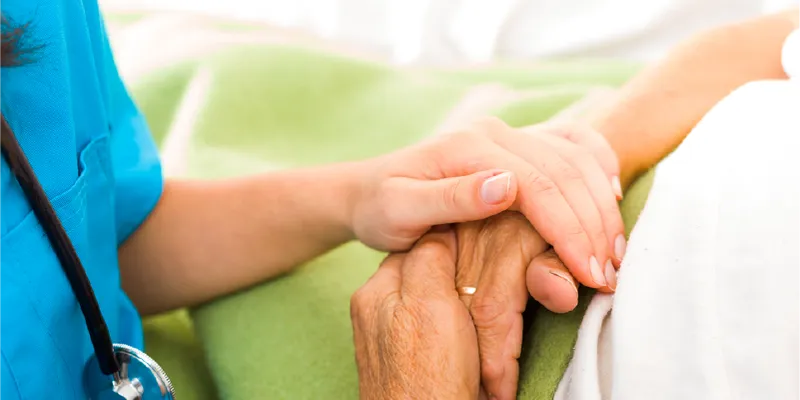[World Cancer Day] Why cancer caregivers need to take as much care during the healing journey
Guilt-ridden, most cancer caregivers burn themselves out caring for their charges. Remember these three lessons to ensure your physical and emotional wellbeing.

Before being a holistic health coach, cancer coach or social entrepreneur, I was first a cancer caregiver. I experienced every person’s nightmare, having a parent go through cancer and being completely helpless in the process. What I learned from my journey contradicts every notion I believed to be true, as a caregiver at the time.
Let me share three valuable lessons I have learned and hopefully, if you’re a caregiver helping with cancer, you won’t find yourself in the same predicament, confusion, and panic I did.
Life does not stop
We, as caregivers, feel an immense amount of guilt that haunts us every day. Sometimes when we find ourselves smiling or disconnecting from reality for a minute or two, this guilt that is always lying there somewhere deep inside, blatantly shows up on the surface. Feeling ok or even good at a time like this is shameful. That’s what our mind tells us constantly, but this is farthest from the truth. Life does not stop for you or your family member going through cancer. We thought our lives came to a stop when my mother was diagnosed and we truly believed that that was the way it should be. But today I can tell you, I lost out on a lot of good years of my life that I will never get back. I am not saying to not be present and supportive, but continue living your life. Yes, there will be adjustments in your personal or professional or social lives, but things don’t stop and we shouldn’t feel guilty. So, whatever your plans are or were, make them happen regardless.
Take time off
In continuation of the above point. If you would like to see your loved one heal and recover, then take time off. Get yourself away from the situation once in a while and you will be shocked how effective this can be in your and your loved one’s healing. Again, as caregivers, we think we need to be there every second of every day because it’s our duty because our loved one going through cancer needs us. Whatever the reasons are, trash them! You need time to yourself to heal. Cancer is an illness that affects the entire family, not only the patient. You will burn out emotionally and physically, which in turn will most definitely affect the patient. Working with cancer patients for many years now, we find that caregivers overwhelm themselves in the process and actually cause more harm towards the recovery of the patient. Those who spent time in self-care showed to be more supportive and productive when need be.
Talk therapy
I didn’t even talk to my best friend about my mother’s illness once in the six years she fought cancer. We hardly spoke about it within our family too. Things have not changed too much from then to now. We work with multiple cancer families who refuse to talk about their illness openly. Due to the heavy stigmatisation of the word, cancer patients and caregivers end up holding all their emotions and fears within, which can be detrimental. When our coaches go and work with patients and their families, they realise that all they want to do is speak and because the caregivers are submerged with guilt, they hold back and refrain most of the time. Out of everything, I would highly recommend taking this point the most seriously.
Cancer is not a scary illness and neither is it something to be ashamed off, so why do we treat it like that? Caregivers are pulled into this rollercoaster of emotions that need to be addressed, and just talking to close friends or professionals can have a profound impact. There are cancer coaches, counsellors, support groups, and many other forums where you can spend time with others and express your emotions. Do it!
Through our holistic programme, CARER makes it a point to involve the caregivers in the healing process. We spend time and effort with each one of them, making them realise that it’s absolutely okay to express their fears, anxieties, and emotions, and heal in the process.
By holding back and stopping my life, my mother’s prognosis did not change, but I was left with years of heartache, guilt, fears, and challenges in moving forward.
(Disclaimer: The views and opinions expressed in this article are those of the author and do not necessarily reflect the views of YourStory.)


![[World Cancer Day] Why cancer caregivers need to take as much care during the healing journey](https://images.yourstory.com/cs/wordpress/2018/02/Cancer-day-02.png?mode=crop&crop=faces&ar=2%3A1&format=auto&w=1920&q=75)




